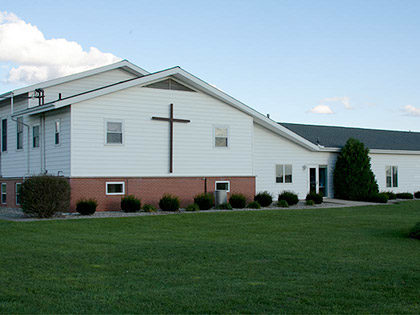Blessed are Those Who Identify with Christ
Pray for: Offering, Musical Worship, Burdens on Hearts, Sheron, Randall, Anita, Message
The Point:
- Being in a true relationship with God through Jesus Christ tends to bring hardship in this life, because the things of today are neglected in favor of the things of tomorrow.
- Not being in a relationship with God, or just pretending to be, tends to lead to an easier life now, but a harder one in the life to come.
Text: Luke 6:17-26
Verses 17-19 – The People Desire to Hear and be Healed
**Brief review – Plus, clarify “apostle,” though it means “messenger,” is a special office they were appointed to. Just like “deacon” means “servant” but is an office. You could say that we are all messengers in a way, but only a very small group in the early church held the office of “apostle.”**
In being appointed to be apostles, they were appointed to a busy life. Right off the bat the action begins. Jesus and the apostles come down and stand upon a level place. All around them now are people, some disciples and some prospective disciples, skeptics, and curious individuals from all the surrounding lands.
Jesus’ fame as a healer and teacher has continued to spread and many have come to hear what He has to say and to be healed by Him.
Looking upon the huge crowd, Jesus begins to teach them truths that have come to be known as the Beatitudes.
It’s likely that Jesus taught these sayings over and over again, many times and in many places. Rabbi’s taught their disciples through repetition. Disciples would follow their Rabbi around and the Rabbi would repeat his teachings over and over again. The disciple was expected to memorize what was said verbatim. And so, we see these teachings of Jesus occurring here on a level place, and in Matthew on a mountain.
**Slide 1**
As Jesus begins the beatitudes, He lays these first ones out in parallel thoughts. There are two groups of four here. And these two different groups represent two different groups of people. It’s not one group who is poor. And one group who is hungry. And one group that is weeping. And one group that is persecuted. These four states of being are all representative of one group – namely, those who live for the sake of Jesus. They are likened to the true prophets because they are true to God and truly serve and live for Him.
And they are poor today because they are living for the kingdom tomorrow, hungry today because they are looking for tomorrow’s satisfaction, weeping today because they are longing for tomorrow’s joy, and persecuted today because they belong to tomorrow’s kingdom.
Likewise, those who are rich, full, laughing, and well-spoken of are not four different groups, but one group. These are four states of being representative of one group – and this group is likened to false prophets, because they are false to God. They aren’t in a real relationship with Him but are pursuing their own glory.
They are rich today because they are living for today, they are full of today’s satisfaction, laughing with today’s delights, and well-spoken of by the people of today. But their consolation is for today only. They will receive none tomorrow.
Verses 20-23 – Blessings vs Woes
Verse 20 —
Poor is not always speaking about money in Scripture. Psalm 40:17 – “As for me, I am poor and needy” Psalm 86:1 – “Incline your ear, O Lord, and answer me, for I am poor and needy.” – Written by King David, who was by no means financially poor.
Luke gave a word for word rendering of this teaching and Matthew gave a thought for thought. In Matthew, this reads “blessed are those who are poor in spirit.” The meaning is of a humble spirit. Not prideful, boastful, but a humble attitude about yourself and your life.
To such, Jesus says, belong the kingdom of God. The kingdom has not been inaugurated yet, but now it is being determined which people will or will not be there.
Link: Contrast this with verse 24…
Verse 24 —
The rich have received their consolation. Like poor, rich should not be understood purely in the economic sense – although that sense is there. But there is more to it and its representing something. We have Matthew’s thought-for-thought translation available to us to help our understanding.
Scripturally, we also have a few other verses that have rich being used to show that the problem is not really the wealth, but the attitude that tends to come with it.
There’s a good passage elsewhere in Luke demonstrating the kind of “rich” that Jesus is speaking against.
Turn to Luke 12:13-21
So we see the problem is not so much the wealth. The problem is the covetousness, the leisurely and selfish life, and the neglect of heavenly things in favor of earthly treasures that tends to come with wealth. The man approaching Jesus about the dispute over money wanted to use Jesus as a weapon to get more wealth. And the man in Jesus’ parable received his consolation, but it was short lived because it was earthly. How much better it would have been for him to have instead neglected wealth and pursued heavenly treasure.
Those who are poor are blessed, because they are pursuing the kingdom and its wealth. They are humble and yes, can be financially poor as well. Those who are rich are in trouble, because they are overly focused on this life’s wealth.
It is quite possible for the economically poor to fall into the pitfalls of wealth and live selfishly and focus too much on earthly treasures. Or for the economically wealthy to become poor through these pursuits. On the flipside, the reverse is also true. It is possible for the wealthy to be humble and kingdom focused.
In fact, we live in strange times. In America, Christianity is growing amongst the economically wealthy and declining amongst the economically poor. Why that is I don’t know, I’m not a sociologist, but it is unusual. The reverse was true in the first century and is in most of the world today.
Verse 21 & 25 —
Here again Luke gives a word-for-word translation while Matthew gives a thought for thought. Luke says “Blessed are you who are hungry now” whereas Matthew says “Blessed are you who hunger and thirst for righteousness.”
The words “now” and “shall” clarify the intent. If you are doing well now, because you are focused on the here and now – you are finding fulfillment and laughter because of your earthly “now” focus. Then, you have received your reward now. But later you will hunger and mourn because all of your treasures were on earth and there is no “shall” for you in eternity.
But on the flipside, if your focus is on the “shall,” then you might naturally find yourself more hungry and laughing less in this life than a “now” focused sort of person. But you are focused on the “shall” and so there will later be a future satisfaction as the righteousness you desire becomes yours and you reap joyful laughter because the perfect eternal state that you desire has become yours.
Those focused on now get it now. And those focused on shall get it shall.
Verse 22, 23, 26 —
**Slide 2**
There are a few key phrases in these verses that show us the intended audience for the beatitudes. The concern is not, first and foremost, a matter of poverty and wealth, or mourning or laughter. It is the reason for the poverty and wealth and the mourning and laughter. A few key phrases in these verses show that the “blessed” and the “woes” are two fundamentally different groups of people. And their difference lies in their relationship to God.
- First, each group ends with a similar phrase. The first ends with “for so their fathers did to the prophets” and the second ends with “so their fathers did to the false prophets.” Like true prophets, the blessed group has a true faith in God and truly do God’s will. And like false prophets, the second group does not have faith in God and seeks their own benefit.
- The first group is identified as suffering “on account of the Son of Man.” They are in a relationship with Jesus. The second group we don’t find the phrase “on account of the Son of Man.” The second group is not.
- Heavenly reward is not acquired merely by being poor, or forfeited by being rich. It is determined by being a part of the believers: who are characterized as poor, hungry, and sorrowful – or a part of unbelievers: who are characterized as rich, full, and happy.
The first group, the blessed, is in a right relationship with God. They identify with Jesus, they live their lives for Jesus, their hope, focus, and expectation are in heaven – where Jesus is. They might be poor, and hungry, and persecuted now, but they are working for tomorrow and their reward will be great.
The second group is a false group. They are like the false prophets. They are well thought of by men because that is their goal. False prophets say what people want to hear, and so people like them. They are applauded – in this life. The second group tends to be rich and full and filled with laughter because their focus is on the now and on themselves and on their own satisfaction. And they get what makes them satisfied because they pursue it. But they just get it in this life, they get it “now” and they don’t have a “shall,” because they don’t have a relationship with Jesus Christ. They are like false prophets, doing what they do not for God, and not out of faith, but out of selfish motivation.
**Slide 3**
The Point:
- Being in a true relationship with God through Jesus Christ tends to bring hardship in this life, because the things of today are neglected in favor of the things of tomorrow.
- Not being in a relationship with God, or just pretending to be, tends to lead to an easier life now, but a harder one in the life to come.
**Slide 4**
Application:
With the Holy Spirit’s guidance, evaluate yourself.
First ask: which group do I belong to?
Next ask: am I focused more on the “now” or on the “shall?” Am I pursuing earthly treasures or heavenly treasures?

